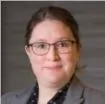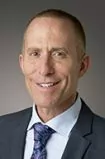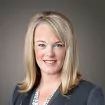- with readers working within the Securities & Investment industries
Cara Reymann is the chief executive officer of First Fertility, which helps patients on their fertility journey through fertility practices and centers across the country.
Q: What inspired you to enter the fertility sector of healthcare?
Cara Reymann: I've been in healthcare my entire career, and the connection to purpose has always been an inspiration. Over the past 10 years, I've been in a position to contribute to building teams and cultures that reflect that purpose. It's particularly meaningful to support those seeking to build families and the emotional resilience required throughout the process. Every team member involved at every step is part of a patient's journey, and these patients are counting on us to provide comfort, peace of mind and, ultimately, a new member of their family.
Q: How do your previous experiences as a leader in healthcare shape your leadership style at First Fertility?
CR: I have spent quite a bit of time reflecting on this topic over the past two years as I moved through a few significant shifts in my career. I'm a very engaged leader and can say with confidence today that an engaged leader who creates clarity for their team and is invested in the team's success is a growth accelerator for any company. There is a quote from the book “Lincoln on Leadership” that I think of often: “Being in touch is the technology of leadership.” I need information to make decisions, and my team is my resource. Being in touch with them gives me a deeper level of insight into the business. It also helps me understand where they have bottlenecks and barriers to success and how I can help.
I have, at times, received negative feedback on my leadership style. It's an interesting challenge to step back and examine that feedback and recognize where there are growth opportunities versus points of view that simply aren't aligned with my values. Every meaningful phase, event or person you encounter in life shapes you. You have to give yourself space to reflect, and when I reflected, I learned to give others more room to grow without sacrificing the level of engagement I feel is necessary to drive success. If you can be introspective, you can harness the lessons you learned in those moments and translate them into personal and professional growth.
Q: You've been at First Fertility for several months now. So far, what have you learned in your new role, and what do you foresee being your biggest challenge in 2024?
CR: This will be a growth year on many fronts for First Fertility, which had some growing pains after establishing itself as an independent entity following the sale of our clinics' original women's health platform. I think a few entities in the field didn't expect to see much from us, but we've quickly established a message that has resonated, and the momentum we've generated has surprised even me.
I'm sharply focused on creating clarity for our teams and filling our business skill gap. We already have some of the best powerhouses in fertility. What we need are more people skilled in communicating, problem solving, navigating conflict and building trust, most importantly among and between teams. Lack of trust is such a barrier to growth for physicians, who need to be aligned with a business plan, and for patients, who will need to embrace a care plan that is often expensive and requires them to remain committed through a long and multistep care plan.
Q: Studies have shown a rise in infertility globally. With that, patient demand for women's health services and fertility services is dramatically increasing. What plans do you have to grow First Fertility to meet this increasing demand?
CR: This is a challenging issue in an industry that has so many barriers to access to care. Fertility requires extensive training for physicians and scientists. Typically, physicians must complete two fellowships — OB/GYN and reproductive endocrinology. To manage an in vitro fertilization lab, an embryologist must pursue a Ph.D. and become certified as a high-complexity lab director.
We are taking steps within First Fertility to remain sought-after by potential candidates, but that doesn't solve a significant problem in the industry: There are not enough specialists to meet the demand. Utilizing technology to expand reach to patients in areas where access to care is limited has been a successful strategy and a win for patients who otherwise would have to travel long distances for frequent appointments. We also need expanded access to insurance coverage with reimbursement rates that reflect the cost of care and administrative requirements that don't add burden to practices and providers.
I've seen plenty of disparaging articles about the involvement of private equity in healthcare, but we're supporting the investments necessary to maintain the safest and highest quality of care and helping practices control costs to keep pace in other areas, such as increasing wages for skilled professionals delivering care.
Q: What is the best advice you've received from another woman entrepreneur?
CR: Margaret Atwood said something I love and keep in a note on my phone: “You become a writer by writing. There is no other way. Do it. Do it more. Fail. Fail better.” There are so many themes wrapped up in fewer than 20 words. Whatever it is you want to do, get started. No one is an expert on day one. Put in the work and be prepared to fail, persevere and get comfortable with that cycle because it will repeat. Then there's the idea of failing “better,” which is essentially learning that becoming an expert is a process, and if you can keep improving incrementally, your growth can ultimately become exponential.
The content of this article is intended to provide a general guide to the subject matter. Specialist advice should be sought about your specific circumstances.
[View Source]



